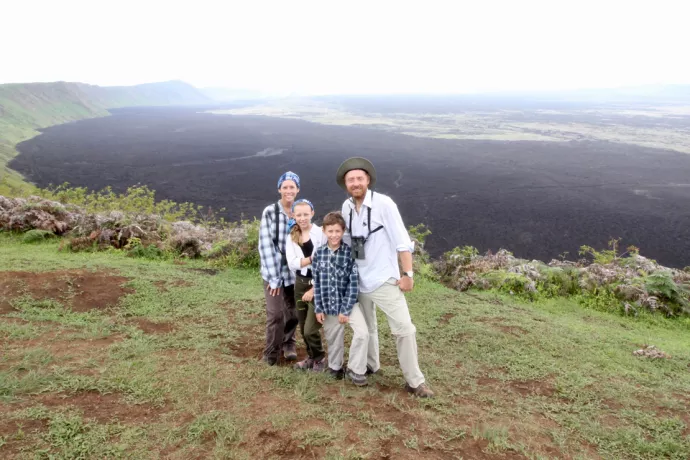
Backyard biology: UTM professor takes home-schooling outside, launches Youtube series with his children
U of T Mississauga Biology Associate Professor Marc Johnson says adults and children can learn many things about nature by exploring their own backyards while staying safe during the current COVID-19 crisis.
“With access to parks being closed right now, we can still stay at home and observe social distancing but explore our own backyards or the areas around your townhome, apartment or condo building,” says Johnson, who is the director of the Centre for Urban Environments. “May is the migration season for tens of millions of warblers and other songbirds moving through our area and resting in trees. Get outside and flip over some rocks or look under logs or leaves and you will discover an amazing diversity of organisms living there such as centipedes, beetles, potato bugs, salamanders or even a mouse.”
Building natural habitats for birds and insects can be a family project. “You can build and install a birdhouse or bee hotel—not for honeybees, but the small bees that don’t sting and live in wood or in sticks,” says Johnson. “These small bees are very important in the pollination process locally. Planting a garden can be a great learning experience. Start simple with things like tomatoes, beans, sugar snaps and even flowers to attract birds and butterflies.”
Catching a caterpillar and putting it in a jar with twigs and leaves can also be a learning experience as children and adults alike watch the metamorphosis from caterpillar through the stages of becoming a moth or butterfly.
For those who do not have access to a yard, there are plenty of great nature shows to watch on Netflix, Disney+ and YouTube. Johnson recommends checking out the Canadian Association of Girls in Science (CAGIS) website as well as Junior Naturalist Clubs. Johnson and his wife Reagan lead the Riverwood Junior Naturalist Club. Their children, 14-year-old Mae and 11-year-old Oscar, created a YouTube channel with their dad called Biology in Your Backyard, which helps kids connect with nature around their home during the COVID-19 pandemic.
[embed https://youtu.be/iEiGQy1HMRg]
“Mae and Oscar were recently featured on this excellent podcast called Tumble Science Podcast for Kids where they talk about what they learned from nature when we went to the Galapagos Islands,” says Johnson.
While taking a sabbatical in 2018, Johnson and his family spent three months living on the Galapagos Islands and another three months travelling to Ecuador, Argentina, Chile and Japan. They lived at the Charles Darwin Research Station on the Galapagos Islands where they conducted science experiments involving the study of the co-evolution between Darwin’s finches and the food they eat. The entire family conducted various research studies to determine how the role of spines on a plant favoured by finches affect seed dispersal.
“We also looked at the growth of cities and towns on the islands and how populated areas, and people may influence seed dispersal,” adds Johnson. “This was a great opportunity for us to conduct science experiments with the kids, and we grew really close through the process.”
Some of their findings were published in Ecology and Evolution in December 2019, with all four Johnson family members credited as authors.
Asked his advice to other parents who may be contemplating embarking on an educational family trip in the future when it’s safe to do so, Johnson answers simply, “Just do it! Make the decision to do it and all the pieces will fall into place.”
